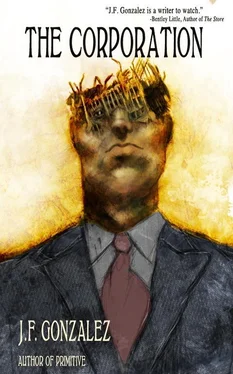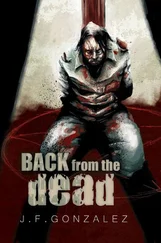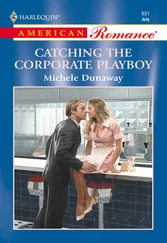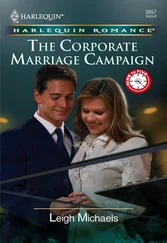Michelle didn’t know what to say. What did this mean? Before she could ask this question Alan answered it for her. “I don’t know what this means specifically but I have my speculations.”
“And that is?”
“First, you need to know more about Corporate Financial Consultants,” Alan said. “You know what they told you during orientation, right?”
Michelle nodded. Company literature revealed the company was founded in 1938 in Westchester County, New York by two businessmen, Zachary Tyler and Hubert Marnstein. They operated out of a small office, then moved to more prominent real-estate in Manhattan in 1943. By 1950 they had offices in Chicago, Atlanta, Houston, and Los Angeles. Their original goal was to help businesses of all kinds find ways to run their operations more smoothly and efficiently. Originally specializing in Accounting Services, the firm began adding various other consulting tasks to their enterprise—Business Administration, Customer Service, Marketing and Advertising, Data Entry and Computer Technology, and Human Resources. They were now the largest privately held corporate consulting firm in the country and in the process of establishing operations in Europe, Japan, and South America.
“They didn’t tell you Tyler and Marstein were strict anti-communists,” Alan said. “That they left the John Birch Society in 1936 because they felt that group was too liberal and formed their own organization.”
“No!” Michelle said.
“Both of them were alarmed at what they felt was the rising tide of socialism in this country,” Alan continued. “They felt Roosevelt’s New Deal, the rising tide of labor unions and the like, was going to carry this country toward full-fledged communism. A lot of people felt that way then; lots of conservatives feel that way now, that things like Social Security and the like are a form of Marxism. We can argue about the merits or validity of those views, but the point of this history lesson is this: Tyler and Marstein were greedy businessmen who would do anything to earn money, even if it meant taking advantage of natural resources and people if they had to do it. Tyler’s grandfather was a plantation owner who’d owned over fifty slaves before the Civil War. Marstein’s family had owned shares in a Railroad company that enslaved Chinese immigrants and Native Americans; they also employed child laborers.”
Rachel cut in. “To make a long story short, their business policy then and now was to retain a two percent stake in every company they took on as clients. Add that up over the years; over a thousand Fortune 500 corporations have retained the services of Corporate Financial over the decades. Two percent of that kind of money adds up to a shit load.”
Michelle nodded, running the figures in her head. “Jesus!”
“Over time they began buying major shares in their client’s companies,” Alan said. “They formed a dummy corporation; this same dummy corporation owns major shares in a very large portion of today’s biggest companies.”
“But that’s…” Michelle sputtered.
“Deception? Yeah, it’s that and a lot more,” Alan said.
“Their ultimate goal is to be not only the dominant corporate power in the country, but the world ,” Rachel said. She drew another cigarette from the pockets of her coat and lit it. “By applying their methods of operation to their client companies, the more the client produces, the quicker profits are funneled up to Corporate Financial and its dummy company. Think of Corporate Financial as being a giant leech. It establishes links—tentacles, if you will—all over the corporate sector. It inserts their employees in this company, establishes their… methods so to speak, and the client begins employing these methods by fair means and foul. Upper management is quick to go along with this because it means larger profits, which translate to bigger salary increases and bonuses for them.”
“This is…” Insane was the word that popped into Michelle’s mind. Paranoid was another. But part of her whispered, what if this is true ?
“You saw the behavior today at the meeting,” Alan said, directly addressing Michelle. “How attentive everybody was, how obsessive, how wholly focused they were on the meeting and nothing else. That’s one of Corporate Financial’s methods. They work into you, insinuating themselves into you so that you begin to think and behave like them. It’s like they take control of your thoughts and your life. You become a literal corporate zombie, your only purpose to live is to work for the company’s goals. Your own goals and interests and life become forgotten.”
“But I don’t understand!” Michelle said, trying to puzzle this out, confused and scared about what she was thinking. “You’re suggesting something… impossible !” Jay O’Rourke’s statement to her last week at the Lone Star kept circling her mind. They’re like something out of that Jack Finney novel Invasion of the Body Snatchers . She refused to believe that.
Alan must have read what was on Michelle’s mind. “Remember Jay’s little verbal spat with Barb at the Lone Star last week?”
Michelle nodded.
“Barb Shull wasn’t the emotionless drone she seemed that night when I first met her a year ago,” Alan continued. “Jay even admitted that to me a few weeks ago. She was always a very career-driven person; one could certainly characterize her as a workaholic. But she totally changed a year ago. Trust me, I saw the change. If you thought she was a corporate drone last week, you would have thought she was a sweetheart a year ago. And back then her employees didn’t think much of her. Now they absolutely loathe her.”
“So you’re saying she became possessed somehow?”
“Possessed is a weak word. I prefer the term hijacked. Taken over.”
“Don’t they mean the same thing?”
“She’s got it right,” Rachel said. She drew on her cigarette. “Especially in light of what we’ve found out in the past two years or so.”
“Hmm, yes, I think you’re right.” Alan motioned to Rachel for a cigarette, which she passed to him. She lit it for him with her lighter.
“What are you talking about?” Michelle asked. She wished they would stop beating around the goddamn bush and just lay it all out.
Rachel Drummond and Alan Perkins traded a glance. Alan looked a little uncomfortable. Rachel drew on her cigarette, her attention focused completely on Michelle. “Take this for what you will… but Tyler and Marstein’s family were involved in the original incarnation of Corporate Financial. Marstein’s family has an interesting history. They’re from Germany; one of his cousins was a member of the SS. Hubert himself wasn’t a Nazi sympathizer, but he took a keen interest in some of the artifacts his cousin Joseph Marstein amassed during the mid-thirties. You see, Joseph was a devil-worshipper . That’s the only term I can use to describe him. Not an occultist, not a witch, a devil-worshipper. And the material he collected while he was a member of the SS was a cache of rare occult volumes, books on black magic and the like. Joseph was killed in 1942, and Herb sought to have his cousin’s belongings brought to the United States. They finally were, in 1945 by a family member who served in the US Army. Hubert stashed the material away and delved into it more fully. I guess you could say Hubert shared his cousin’s faith.”
Michelle didn’t know what to say. She could only listen, spell-bound.
Rachel drew on her cigarette and tapped ashes in the ashtray. “Marstein’s son began to take on a larger role in the family business as the years went by, and when old man Hubert died in 1968, Frank took over as President and Chairman of the Board. By this time he was living in northern California, in the high Sierras, and he maintained offices in San Francisco. He was also well-known in occult circles in the Bay Area to be a very powerful member of a secret satanic organization, one with ties to some pretty sinister groups—the Children of the Night, the Order of the Golden Dawn, groups like that. When he took control of Corporate Financial, the company’s growth began to accelerate drastically. By 1980 they were the largest private consulting firm in the country. Their methods began to slowly creep into the standard everyday practices of corporations across the country, and by the mid-eighties their Human Resources division was beginning to be embraced by their core clients. Ten years later, these methods were widespread, and today they’re spreading faster than you would like to believe.”
Читать дальше












